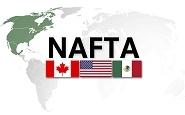Government/Policy

September 12, 2017
Steel, Auto Sectors Eye Rules of Origin
Written by Sandy Williams
Representatives from the U.S. auto and steel industries are working on a joint proposal to address changes in the rules of origin for steel used in vehicle production. The Trump administration and domestic steelmakers would like to close “loopholes” that allow foreign steel producers to take advantage of NAFTA rules. Currently, automobile content must be of at least 62.5 percent North American origin to qualify for tariff exemptions.
The two sectors are trying to reach a compromise that will protect domestic steel producers without jeopardizing the competitiveness of North American automakers. Discussions are going slowly, but sources quoted by Inside U.S. Trade are confident that all three countries can reach an agreement.
Although no details have been released, it has been suggested that the two sectors could find a way to compromise without including a domestic contribution requirement or adding steel to the NAFTA tracing list for rules of origin. Talks are focused on future supply chains as a way to encourage North American content, said one source.
The U.S. Trade Representative reportedly has suggested increasing U.S. domestic content to between 35 and 50 percent, an idea that has been strongly resisted by automakers and NAFTA partners.
The discussions are expected to expand to include other industry members and international auto manufacturers.
NAFTA negotiations are “complicated,” said U.S. Secretary Commerce Wilbur Ross in an interview with the Washington Post following round two of the negotiations. The strategy was to begin the talks with easier topics in order to build momentum, he said.
He reiterated that the U.S. will pull out of the agreement if a new deal cannot be reached that is more favorable to the United States.
Ross said the talks are on a “record-breaking pace” considering it took eight years to originally negotiate the agreement. He still expects talks to wind up before the end of the year, saying they “can’t drag on too long because of the political calendar.” Canadian provincial and U.S. midterm elections are scheduled for next year, as well as presidential elections in in Mexico in mid-summer. “As you get closer to all of those political dates, the ability to get anything done will go down,” he said.
The next round of NAFTA negotiations will be in Ottawa from Sept. 23-27.







